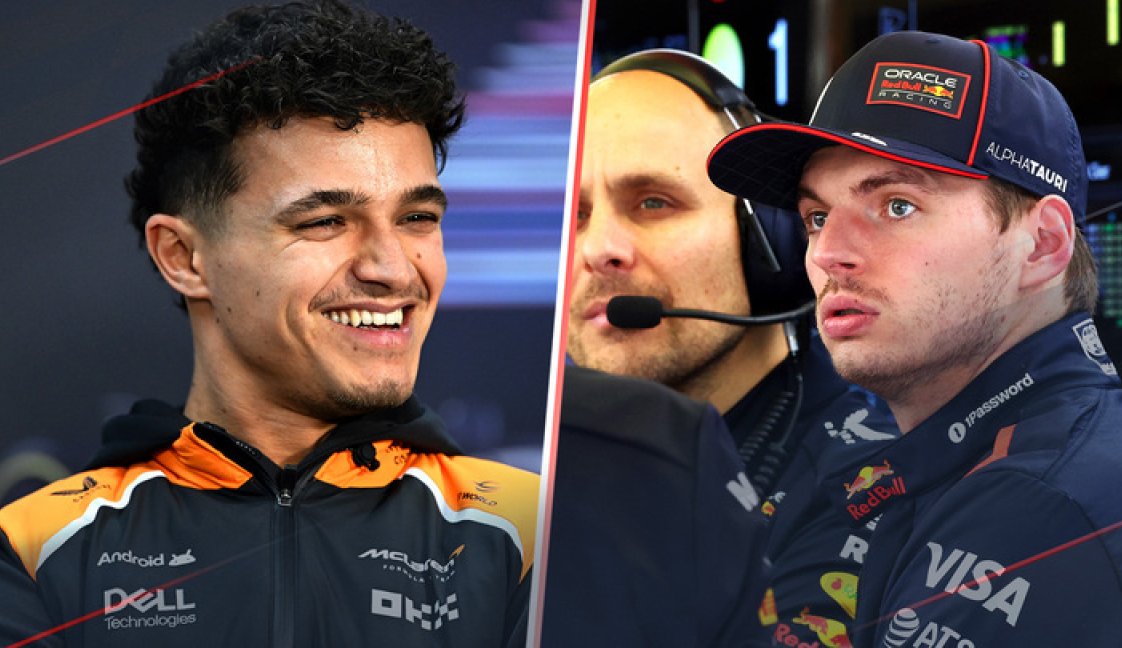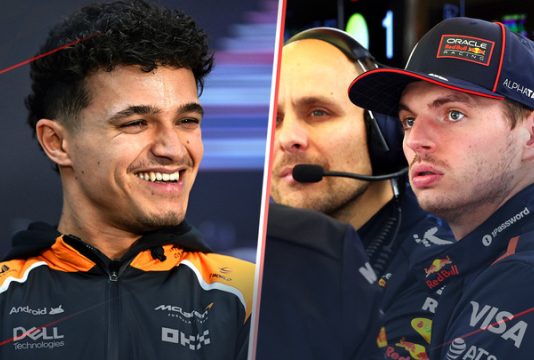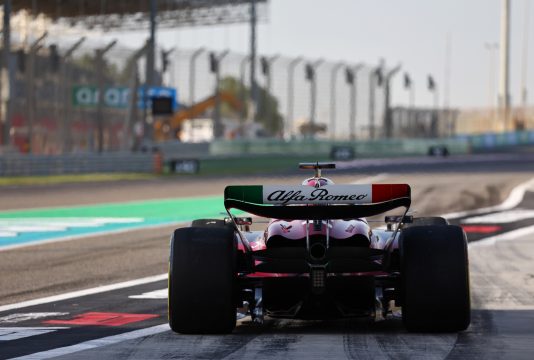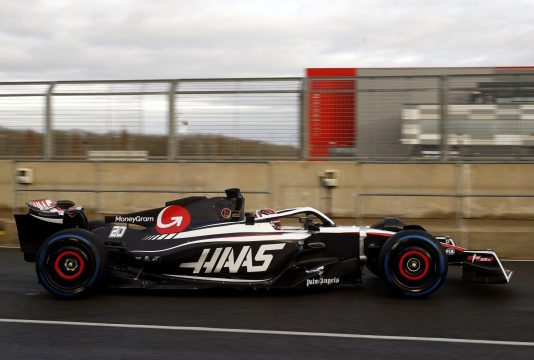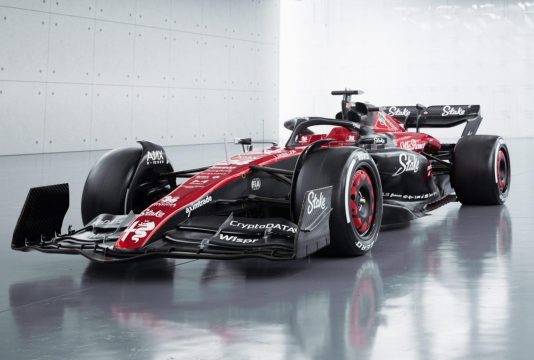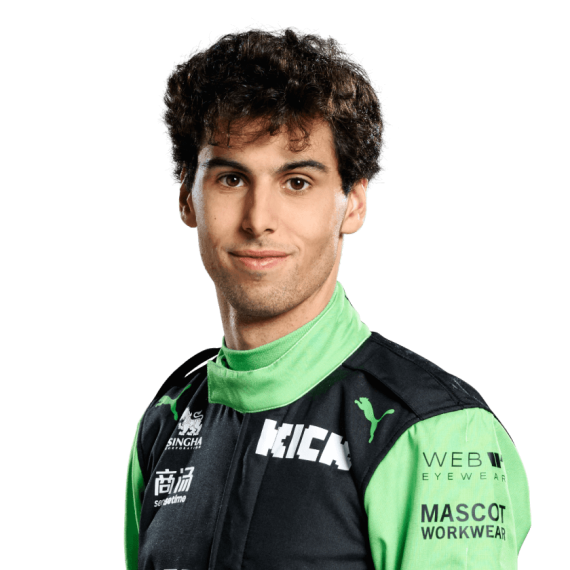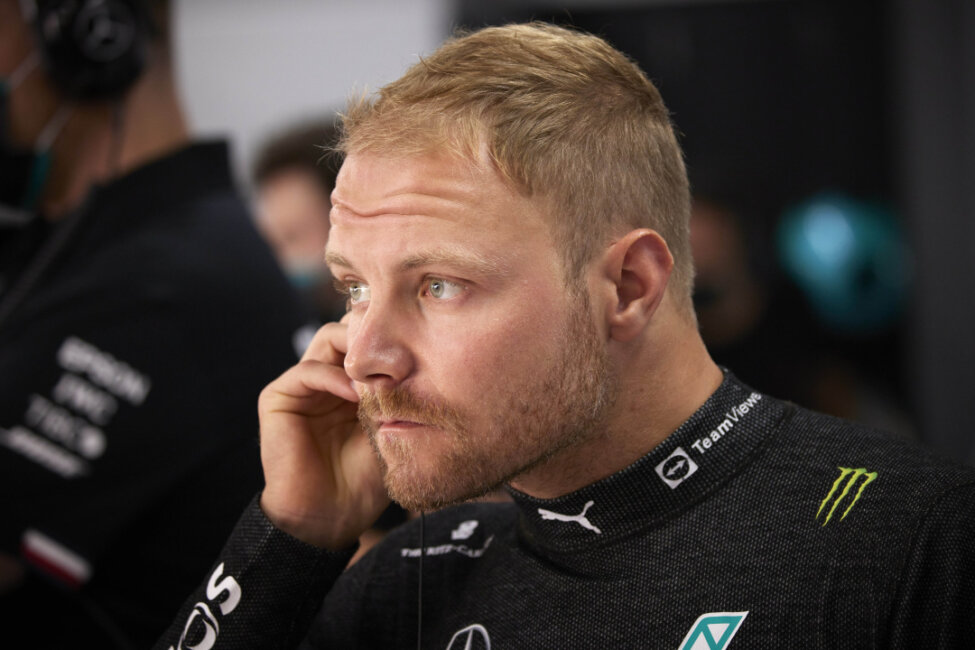
Stake F1 Team
Hülkenberg & BortoletoIn 2024, the Stake F1 Team (formerly Alfa Romeo) experienced an extremely disappointing season, scoring only four points. This was partly due to the team's focus on the 2026 season, when Audi will take over. In 2025, the team will start with two new drivers: Nico Hülkenberg and Gabriel Bortoleto.
F1 season 2025
| WC Position | 9 |
| WC points | 68.0 |
| Podiums | 1 |
| Pole positions | 0 |
F1 history
| World titles | 0 |
| WC Points | 1086 |
| Podiums | 28 |
| Pole positions | 27 |
Pre-war European Championship and post-war
Alfa Romeo were a household name in Grand Prix racing prior to World War II. The team were regular winners until Mercedes and Auto Union became successful in the mid to late 1930s, at which point Alfa withdrew while still supporting privateers like Enzo Ferrari and his Scuderia Ferrari team.
After the war, Alfa dominated the new Formula 1 World Championship from 1946 to 1949, winning every race they entered with the exception of three.
Winners of the first World Championship of Drivers
In 1950, Giuseppe Farina won the first World Championship of Drivers in the 158 with a supercharger, winning three of the seven races. Teammate Juan Manuel Fangio, who finished second, took the title the following year.
However, Alfa Romeo withdrew from the series in 1952 after facing increased pressure from former employee Ferrari. Alfa was a state-owned company, but decided to withdraw after the Italian government refused to fund the expensive design for their new car.
Return to Formula 1
Autodelta received permission from Alfa Romeo to begin developing an F1 car on their behalf in 1977. From there, the Alfa Romeo 177 made its debut at the Belgian Grand Prix, though Bruno Giacomelli retired due to crashing out after 21 laps.
Although the team competed between 1979 and 1985, they failed to achieve any major success. The Italian outfit managed to secure two pole positions, two-second place finishes, three thirds and a fastest lap, while Giacomelli led most of the 1980 United States Grand Prix before retiring with electrical problems.
The team experienced tragedy in 1980 when driver Patrick Depailler was killed while testing at the Hockenheimring for the German Grand Prix. Alfa Romeo's best season came in 1983 as they finished sixth in the Constructors' Championship, boosted by the switch to turbocharged 890T V8 engines, which helped Andrea de Cesaris to two second-place finishes.
However, with other teams switching to more powerful and fuel efficient engines, coupled with the FIA's 220-litre full limit and re-fuelling in pit-stops for 1984, the team began to decline. Alfa continued to use their turbo V8 engine but performed poorly, even after running with less boost in an attempt to save fuel.
Riccardo Patrese's third place at the 1984 Italian Grand Prix was Alfa Romeo's last podium result, as the Italian and teammate Eddie Cheever often failed to finish that season - as well as the next - due to running out of fuel.
In fact, the team's 1985 car, the Alfa Romeo 185T, was so uncompetitive that the team switched back to the 184T midway through the season. Following the final race of the campaign in Australia, Alfa Romeo pulled out of F1 as a constructor.
Alfa Romeo as an engine supplier and sponsor
During the 1960s, teams such as LDS, Cooper and De Tomaso all used Alfa Romeo straight-4 engines.
Peter de Klerk created a custom-made, single-seater racer for the South African F1 championship. Named the Alfa Romeo "Special", the car took part in the 1963 and 1965 South African Grands Prix along with five non-championship races. Their best result was a podium at the 1963 Rand Grand Prix.
Alfa made a brief return in 1970 and 1971 with a V8 engine that appeared in a third works McLaren, though the entry of rent failed to qualify. A similar arrangement was made in a March car in 1971 to similar results.
Bernie Ecclestone struck a deal for the Brabham F1 team to use Alfa Romeo engines in 1976, while Ligier were supplied by the Italian manufacturer in 1987. However, when Fiat took control of Alfa Romeo, the deal was cancelled, with Ligier using Megatron engines instead.
Small Italian team Osella used Alfa engines from 1983 to 1988 but, following the team's poor results, Alfa prohibited the further use of its name with the engine.
Meanwhile, Alfa Romeo branding appeared on Ferrari cars from 2015 to 2018, starting with the Ferrari SF15-T.
Prior to Sauber being renamed Alfa Romeo Racing for the 2019 season, the Italian outfit served as Sauber's title sponsor for the 2018 campaign, with Charles Leclerc and Marcus Ericsson the driver pairing.
Sauber becomes Alfa Romeo Racing
Alfa Romeo wouldn't return to the F1 grid until the 2019 season, when Sauber announced that they would become Alfa Romeo Racing. Unlike Sauber's deal with BMW, the ownership, racing licence and management structure remained unchanged.
Kimi Raikkonen and Antonio Giovinazzi were named the team's driving line-up. Giovinazzi managed to lead the Singapore Grand Prix for four laps, the first time that an Alfa Romeo had led an F1 race since De Cesaris back at the 1983 Belgian Grand Prix.
The team's best results came at the Brazilian Grand Prix, when Raikkonen and Giovinazzi finished fourth and fifth respectively, helping Alfa Romeo to end the year in eighth place with 57 points.
Both drivers returned for the 2020 F1 season but the team took a significant step back, finishing eight in the standings once again, but this time with just eight points. Despite the lack of success, both Raikkonen and Giovinazzi were brought back for the 2021 season.
Struggles and goodbyes in 2021
The 2021 F1 season did not start particularly strongly for Alfa Romeo, with the team failing to score any points until the fifth round of the season in Monaco, where Giovinazzi claimed one point with a P10 result.
Another point came at the next event in Azerbaijan, though this time it was Raikkonen who took the honours. Eventful races like that seen in Baku seemed to provide an opportunity for the outfit to add to their tally, with their next point coming thanks to Raikkonen's 10th place in the chaotic Hungarian Grand Prix.
The team's best result of the campaign was a P8, achieved by Raikkonen in Russia and Mexico. Meanwhile, Giovinazzi took two points at the penultimate round of the year in Saudi Arabia.
This was not enough to secure the Italian's future, though, with Alfa Romeo announcing that he would be replaced by rookie Guanyu Zhou in 2022. Giovinazzi couldn't hide his disappointment about losing his spot, but went on to find a seat in Formula E.
Meanwhile, Raikkonen confirmed that he would retire at the end of the year following an extensive career in Formula 1. The team gave the Finn an emotional send-off after his three years with them. It was soon revealed that Valtteri Bottas would take Raikkonen's place in 2022.
In terms of results, Alfa Romeo finished 2021 in ninth place in the Constructors' Championship, with just nine points to their name.
2022: New rules and a change in drivers
2022 marked the beginning of a new chapter, both in Formula 1 and at Alfa Romeo. Bottas has signed a multi-year deal with the outfit, bringing him the extra security he craved after previously being handed one-year contracts at Mercedes.
It was a promising first outing for Zhou getting points on his debut with the team at the Bahrain Grand Prix, while Bottas also finished in the top 10.
However for Zhou his luck would take a turn for the worst when consecutive reliability problems from Saudi Arabia onwards forced him to miss crucial time in practice. He suffered from back-to-back retirements at the Miami and Spanish GP, and would not score points again until the Canadian GP.
Meanwhile teammate Bottas was on a run of points finishes, achieving his highest-placed finish of the season of 5th at the Emilia Romagna GP.
A frightening crash at the start of the race in Silverstone for Zhou showed just how far F1 safety had come in the last decade, while Bottas' run of points also ended at that race owing to a gearbox issue.
Zhou would go on to finish in the points again for a final time at the Italian GP, rounding off his season with 6 points and 18th in the standings. Bottas meanwhile finished in 10th in the standings having amassed 49 points over the season.
Breaking into the midfield? The 2023 season
For 2023 the team has elected to continue with their current driver lineup of Bottas and Zhou, however Team Principal Frederic Vasseur has departed to Ferrari.
Former McLaren Team Principal Andreas Seidl has come on board as part of Audi's strategic takeover, something Bottas has indicated that he would like to stick around for in the future.
As the team looks forward to a future with the German manufacturer, they will be hoping for a return to the days of fighting for podiums.
However, their 2023 season didn't go quite as expected, as they finished 9th in the Constructors' Championship, ahead of Haas. This marked a significant difference from their performance of finishing 6th in the 2022 championship. After a decent season start, they couldn't maintain the momentum and began the early development of the 2024 car.
The start of Stake F1 team
From the 2024 season onwards, Alfa Romeo won't be the sponsor of Sauber anymore. The team will be named 'Stake F1 Team.' The team name might be adjusted a bit in some Grands Prix because of the local gambling rules to which Stake is related. For example, during, among other events, the Dutch Grand Prix, the team name will be 'Kick F1 Team.' Will the Stake F1 Team be able to break into the midfield in 2024?
Starting from the 2024 season, Alfa Romeo will no longer be the sponsor of Sauber. The team will be named 'Stake F1 Team'. The team name may be adjusted per Grand Prix due to local gambling regulations that Stake is associated with. For instance, during the Dutch Grand Prix, the team name will be 'Kick F1 Team'. Unfortunately, the early work on the 2024 car did not yield the desired results, as only four points were scored this season and the car was clearly not competitive enough.
Stake F1 Team acquired by Audi in 2026
With Audi joining in 2026, the team is fully preparing for this transition and new names such as Mattia Binotto and Jonathan Wheatley will lead the team to improve. How will Stake F1 Team perform in 2025?
Don't miss out on any of the Formula 1 action thanks to this handy 2026 F1 calendar that can be easily loaded into your smartphone or PC.
Download the calenderStake F1 Team news
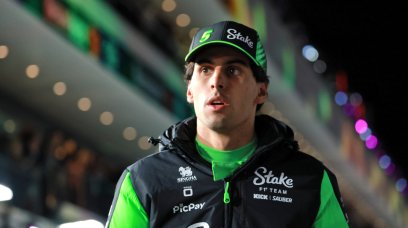
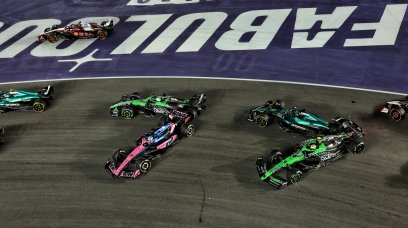
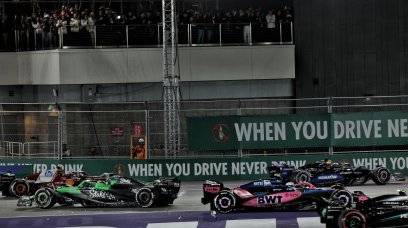
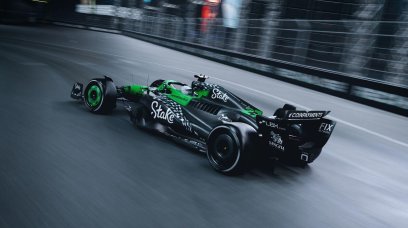

Stake F1 Team videos
